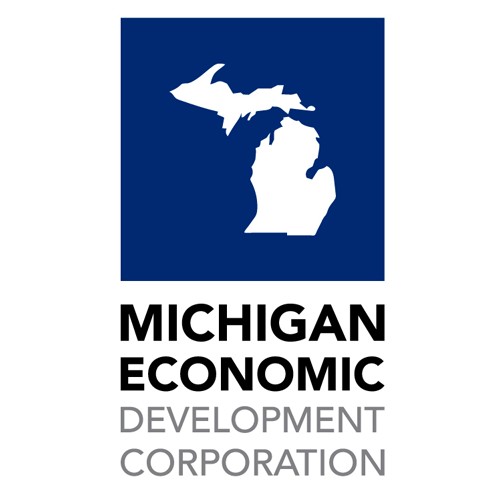LANSING – The Michigan House Commerce and Tourism Committee on Thursday moved legislation providing some additional tax exemptions to the company Switch in Gaines Township while holding off on two bills that would expand tax exemptions for additional data centers.
SB 455 was referred to the House Ways and Means Committee 6-4 with one Democratic member abstaining. The bill moved as Switch reached a deal with the Kent County Intermediate School District and Caledonia schools.
The deal comes as Switch seeks additional tax exemptions, which it says are a clarification of the 2015 deal it made with the state to become a renaissance zone after legislation passed exempted co-located data centers from paying sales or use taxes.
Switch says it was not required to pay any property taxes – and did not receive a bill for nearly three years – while the state and schools said the renaissance zone did not exempt it from all property taxes.
As SB 455 moved, legislation (HB 5127 and HB 5128) expanding the definition of data centers receiving the sales and use tax exemptions did not move from the committee Thursday.
Chris Glass, representing the Kent County ISD and Caledonia Schools, was neutral on the bill. Glass said the schools and Switch had come to a “framework agreement,” which includes SB 455.
The agreement also includes, as Gongwer reported Wednesday, the resolution of the complaint Switch filed with the Tax Tribunal seeking a refund of the approximately $624,000 in taxes it paid for the enhancement millage and debt millage in a way that prevents the school districts from having to repay those funds.
Another piece is that Switch will in effect commit to paying real property taxes as though its property’s assessed value rises by 10 percent per year. If the official assessment does not rise by that amount, Switch will make up the difference.
Also included in the deal is legislation (HB 5187 and HB 5188) introduced Thursday requiring reimbursement payments to the School Aid Fund for sales and use tax exemptions. An amendment to tie bar those bills to SB 455 failed Thursday.
Glass said the schools are comfortable with how the agreement is progressing.
During Thursday’s hearing, Natalie Stewart with Switch maintained the company believed they would be exempt from paying all property taxes after making a deal with the state to enter into a renaissance zone. However, the agreement signed by the company said it would have to pay some property taxes.
Stewart said without the bill there are deals that are “in flux” as those involved see if the legislation is passed. She also said the lack of the bill could slow down the growth and development at the Gaines Township site.
“That is not our hope,” she said. “We like being here in Michigan.”
Rep. Kara Hope (D-Holt) also questioned the agreement signed by Switch and why the company signed the agreement if it did not reflect what they thought.
John Lindley, with Public Affairs Associates, said proof that Switch thought the deal meant they were exempt from these property taxes is that they came to Michigan and set up shop. They would not have done so otherwise, he said.
“If that wasn’t the agreement, they wouldn’t have started the operations and their clients wouldn’t have come,” he said.
Rep. Darrin Camilleri (D-Brownstown Township) said he was confused about the company’s argument that the only way it can be competitive in Michigan is with the tax exemption outlined in the bill, even though others would not see the exemption.
Stewart said any co-located data center could apply to be in a renaissance zone.
“But then we are going around the Renaissance Zone Act with this legislation,” Camilleri said. “That is what you are asking us to do.”
Jennifer Smith, with the Michigan Association of School Boards, which opposes the bill, said she is gravely concerned that the situation with Switch will set a precedent for other companies in renaissance zones to seek further tax exemptions.
She also noted that while the 2015 legislation exempting Switch along with all co-located data centers from sales and use taxes included a hold harmless provision for the School Aid Fund, which was never actually done.
Mr. Camilleri, Ms. Hope, Rep. John Reilly (R-Oakland Township), Rep. Luke Meerman (R-Coopersville) voted no on SB 455 with Rep. Sarah Cambensy (D-Marquette) voting yes.
ENTERPRISE DATA CENTERS: Also discussed Thursday were bills that would expand the definition of data centers and extend the sales and use tax exemption that applies to co-located centers like Switch and would apply to new, larger data centers to 2055 rather than 2035.
Under the bills, enterprise data centers that invest at least $250 million and have 30 full-time equivalent employees who make 120 percent of the average annual wage for the county where the facility is located would see sales and use tax exemptions.
Enterprise data centers could include larger scale operations of just one company, like a Facebook or Google, instead of several companies co-locating at a data center.
Supporters of the bills say those companies are not seeking to locate in Michigan currently without the sales and use tax exemptions, which are provided in other industries that involve expensive equipment, like agriculture.
Rep. Bronna Kahle (R-Madison) and Rep. Rebekah Warren (D-Ann Arbor) have said the bills would bring in revenue not currently realized by the state, so the exemption would not necessarily lose the state money.
School groups had similar concerns with the bills as they did with the Switch-specific legislation, despite the efforts to actually ensure the School Aid Fund received payments reimbursing it for revenues lost through sales and use tax exemptions.
And Tim Greimel with American Federation of State, County and Municipal Employees noted while reimbursing schools is good policy, the General Fund is already seeing additional pressures.
“Let’s not pretend the General Fund is just free money or doesn’t matter,” Greimel said.
This story was published by Gongwer News Service.






